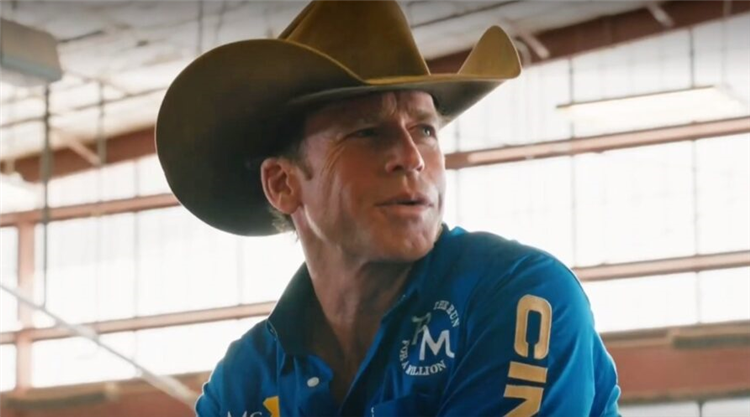All of this is a far cry for Brings Plenty, who was ready to give up acting before Sheridan reached out to him to play Mo. Brings Plenty said he was finally able to relax a bit after the first season concluded and he knew there was more coming his way.
Yellowstone Contains Significant Embellishment
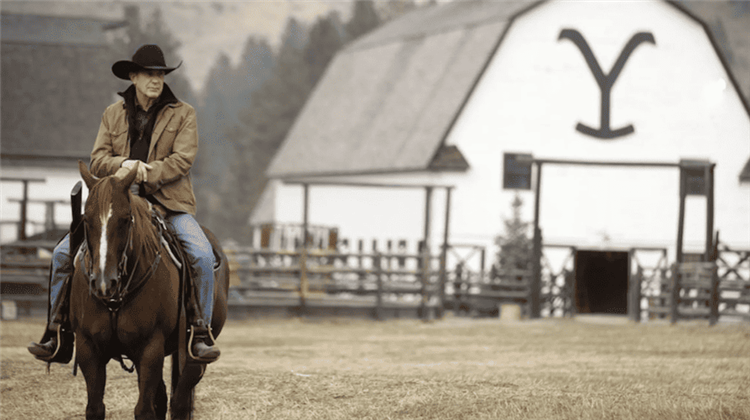
First and foremost, we are talking Hollywood here. Even though Taylor Sheridan has made it perfectly clear that the buck stops with him and all decisions are his, he sometimes does have to acquiesce to certain Hollywood tropes for dramatic purposes. Yes, that is a semi-fancy way of saying that a certain amount of embellishment is necessary to make his story hum.
One of the main places Sheridan needs to make allowances for would be the Montana weather. For those of you out there who live in the state or who have tried to live in the state, you know exactly what we are referring to here.
The weather is no joke in Montana, especially where the Yellowstone Ranch is located. Snow is a factor much of the year and there are times when the snow doesn’t even melt.
To understand what we are talking about when it comes to Montana weather, we just need to take a glance at the yearly snow averages. Across the entire United States, the average snowfall is typically less than 30 inches. In the state of Montana, the average snowfall is 96 inches a year.
Yellowstone has made concessions for the actual weather in Montana because of how it would effect the actors
This is over three times the nation’s average. With that much snowfall and the fact that the temperatures in the state are mild at best, the Yellowstone series should be seeing much more than the occasional smattering of the mountains in the background.
The franchise has tried recently to bring more of the elements into play with the Yellowstone spin-offs, 1883 and 1923. Ultimately though, the franchise’s producers along with Taylor Sheridan can be forgiven for not wanting to put their actors through the paces of having to deal with the numbing cold that is a true Montana winter.
It is true (at least according to the University of Montana) that the state holds the nation’s record with a 70-degree-below-zero temperature reading. It is not uncommon for Montanans to find themselves dealing with 20-below temperatures that can cause all kinds of trouble.
The Yellowstone Locations

Another embellishment found in the franchise is the actual location between Billings, Montana, and Paradise Valley. It kind of reminds us old timers of the Bonanza
TV series where the Ponderosa Ranch was located near Lake Tahoe, but the Cartwrights always seemed to easily get to Virginia City, which is a good 30+ miles away. That’s a long ride on horseback. But we digress.
Another embellishment for TV purposes is that there is no Broken Rock Indian Reservation located near the Dutton’s. In fact, the Crow Indian Reservation is actually the closest one to the fictional Dutton Ranch and even that is located in the southeastern part of Montana.
The Ranch Hands
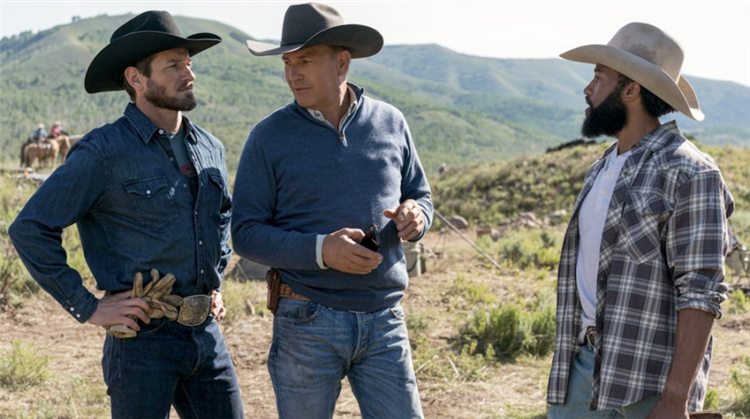
Another major faux pas of Yellowstone falls on the ranch hands. We all do understand that the series does have limits in casting and financially it makes sense to feature only a half dozen or so ranch hands, but the reality of the situation is much different.
To run a ranch the size of the Dutton’s, John Dutton would have to employ in the hundreds and probably easily over 600-700. King Ranch in South Texas has been the inspiration for the series, and it employs over 700 cowboys.
One last thing that completes the drama in the series but something that doesn’t exist would be the “train station,” the place where the “bodies are buried.” John Dutton and his right-hand man, Rip (Cole Hauser) use this area for the unfortunates who have crossed the Dutton’s.
1883 Historically Speaking
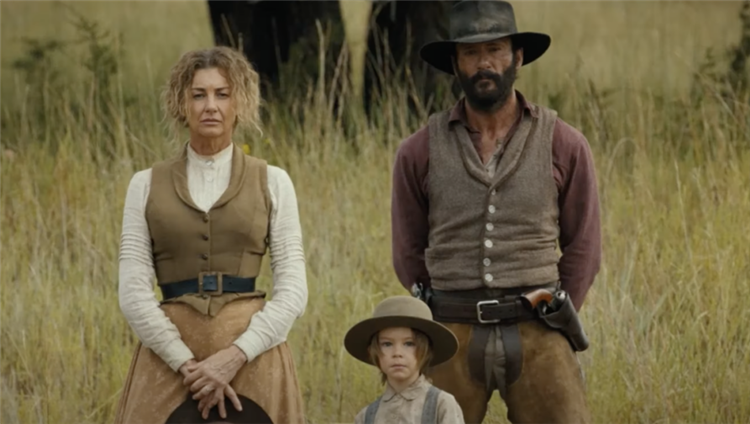
One of the fascinating aspects of both the 1883 and 1923 series was that they both took place during interesting times in our nation’s checkered past. 1883 followed the Dutton’s on their journey from Fort Worth, Texas, where they join up with German immigrants, to their intended destination of Oregon. Along the way, they face numerous obstacles that beg the question – how accurate is 1883?
There is a lot in the series that is quite accurate. While the prequel Yellowstone series is not based on any one particular family, it is inspired by certain true stories of the times. Having the caravan deal with cholera and smallpox was spot on as those two diseases ran rampant through those heading out west.
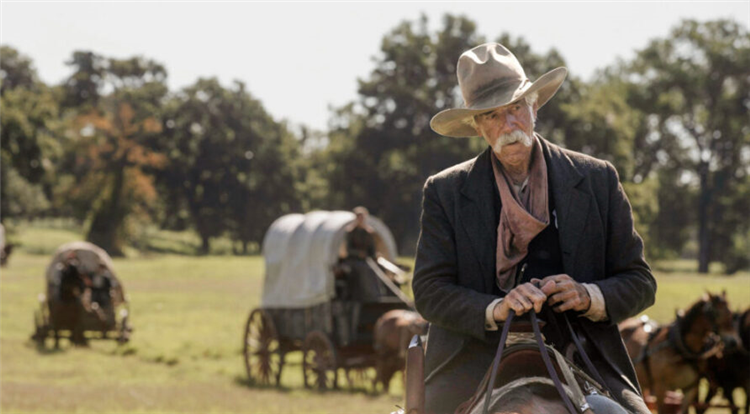
Other historical facts shown in 1883 were the dangerous river crossings, fighting off bandits and cowboys who wanted to steal their goods, and many of the immigrant families having to leave their precious goods behind because their wagons were too heavy.
There were also a few characters throughout 1883 that were actual real-life characters from that time. When we saw James Dutton (Tim McGraw) in a flashback during the Battle of Antietam (the deadliest one-day battle in the history of the American military) he is being consoled by General George Meade, played by Tom Hanks. Hanks’s character is based on the real General George Meade, an officer during the Civil War.

Billy Bob Thornton appeared in 1883 playing Marshal Jim Courtright. Sheridan based him on Timothy Isaiah Courtright, a Wild West gunslinger. Finally, Taylor Sheridan got into the act himself. In episode 7, Sheridan showed up as cattleman Charles Goodnight, a nod to the most famous Texas rancher in history.
Where things went a little sideways for Sheridan and the 1883 cast was the believability of their look. The costumes were perfect for the time period, but what wasn’t was they appeared too clean.
One of the biggest beef viewers had, believe it or not, was with the noticeably impeccable dentistry most of the characters were sporting. The white teeth were off-putting.
Other than that, Sheridan made sure that the look, feel, and facts were as close to perfect as possible.
1923 Historically Speaking

Taylor Sheridan’s attention to detail as he draws up his Yellowstone prequels is one of the reasons he is able to attract A-list talent. It is exactly what brought both Harrison Ford and Helen Mirren to 1923.
The one standout fact that was accurate in 1923 was just how The Great Depression and prohibition affected the state of Montana. This is something that Sheridan showcased by showing just how hard the depression was taking its toll on farmers.

Another fact shown was the aftereffects of the First World War. This is especially apparent in the story of Spencer Dutton, played by Brandan Sklenar. One more thing that was a struggle during those times and expertly drawn up by Sheridan was the rough transition to a more modern way of life. Electricity, motor vehicles, and appliances were all new and some were reluctant to embrace these things.
All in all, both 1883 and 1923 were as accurate as could be. Sheridan and his crew did a wonderful job researching the history of the times to tell great stories of our past.
Yellowstone Continues to Expand
Despite some of the necessary inaccuracies, and despite the fact that Yellowstone itself will be ending after its fifth season, the franchise itself is still finding ways to thrill fans with its spinoffs. We have already been treated with 1883 and 1923, the latter of which is said to be getting a second season.
Also in the mix is Lawman: Bass Reeves which is a continuation of sorts of 1883 and will star David Oyelowo as Reeves. We also know that Matthew McConaughey will be starring in an as-of-yet-unnamed sequel to Yellowstone, taking over the lead for departing Kevin Costner.
